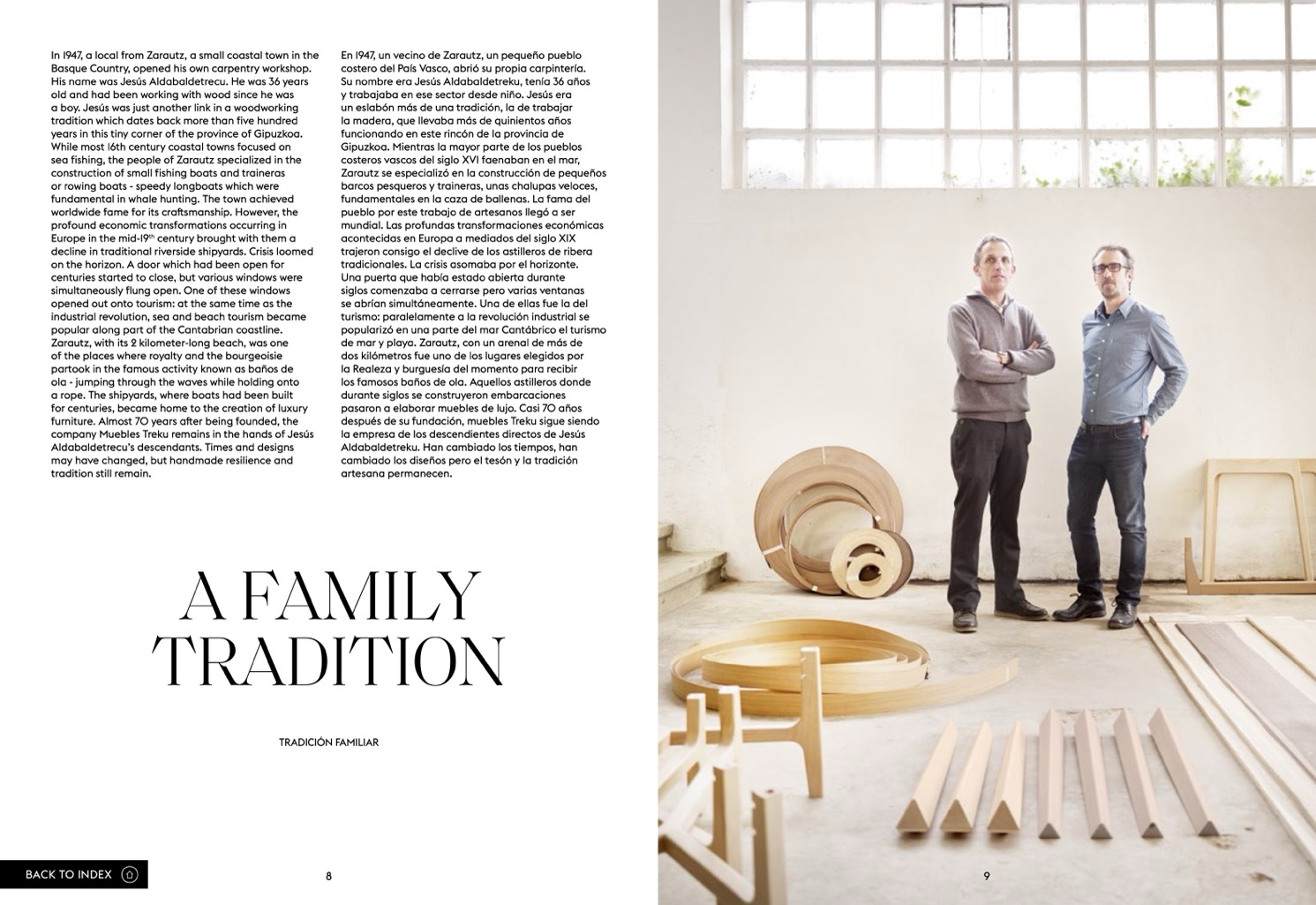
BACK TO INDEX
In 1947, a local from Zarautz, a small coastal town in the
Basque Country, opened his own carpentry workshop.
His name was Jesús Aldabaldetrecu. He was 36 years
old and had been working with wood since he was
a boy. Jesús was just another link in a woodworking
tradition which dates back more than five hundred
years in this tiny corner of the province of Gipuzkoa.
While most 16th century coastal towns focused on
sea fishing, the people of Zarautz specialized in the
construction of small fishing boats and traineras
or rowing boats - speedy longboats which were
fundamental in whale hunting. The town achieved
worldwide fame for its craftsmanship. However, the
profound economic transformations occurring in
Europe in the mid-19
th
century brought with them a
decline in traditional riverside shipyards. Crisis loomed
on the horizon. A door which had been open for
centuries started to close, but various windows were
simultaneously flung open. One of these windows
opened out onto tourism: at the same time as the
industrial revolution, sea and beach tourism became
popular along part of the Cantabrian coastline.
Zarautz, with its 2 kilometer-long beach, was one
of the places where royalty and the bourgeoisie
partook in the famous activity known as baños de
ola - jumping through the waves while holding onto
a rope. The shipyards, where boats had been built
for centuries, became home to the creation of luxury
furniture. Almost 70 years after being founded, the
company Muebles Treku remains in the hands of Jesús
Aldabaldetrecu’s descendants. Times and designs
may have changed, but handmade resilience and
tradition still remain.
En 1947, un vecino de Zarautz, un pequeño pueblo
costero del País Vasco, abrió su propia carpintería.
Su nombre era Jesús Aldabaldetreku, tenía 36 años
y trabajaba en ese sector desde niño. Jesús era
un eslabón más de una tradición, la de trabajar
la madera, que llevaba más de quinientos años
funcionando en este rincón de la provincia de
Gipuzkoa. Mientras la mayor parte de los pueblos
costeros vascos del siglo XVI faenaban en el mar,
Zarautz se especializó en la construcción de pequeños
barcos pesqueros y traineras, unas chalupas veloces,
fundamentales en la caza de ballenas. La fama del
pueblo por este trabajo de artesanos llegó a ser
mundial. Las profundas transformaciones económicas
acontecidas en Europa a mediados del siglo XIX
trajeron consigo el declive de los astilleros de ribera
tradicionales. La crisis asomaba por el horizonte.
Una puerta que había estado abierta durante
siglos comenzaba a cerrarse pero varias ventanas
se abrían simultáneamente. Una de ellas fue la del
turismo: paralelamente a la revolución industrial se
popularizó en una parte del mar Cantábrico el turismo
de mar y playa. Zarautz, con un arenal de más de
dos kilómetros fue uno de los lugares elegidos por
la Realeza y burguesía del momento para recibir
los famosos baños de ola. Aquellos astilleros donde
durante siglos se construyeron embarcaciones
pasaron a elaborar muebles de lujo. Casi 70 años
después de su fundación, muebles Treku sigue siendo
la empresa de los descendientes directos de Jesús
Aldabaldetreku. Han cambiado los tiempos, han
cambiado los diseños pero el tesón y la tradición
artesana permanecen.
A FAMILY
TRADITION
TRADICIÓN FAMILIAR
8
9

